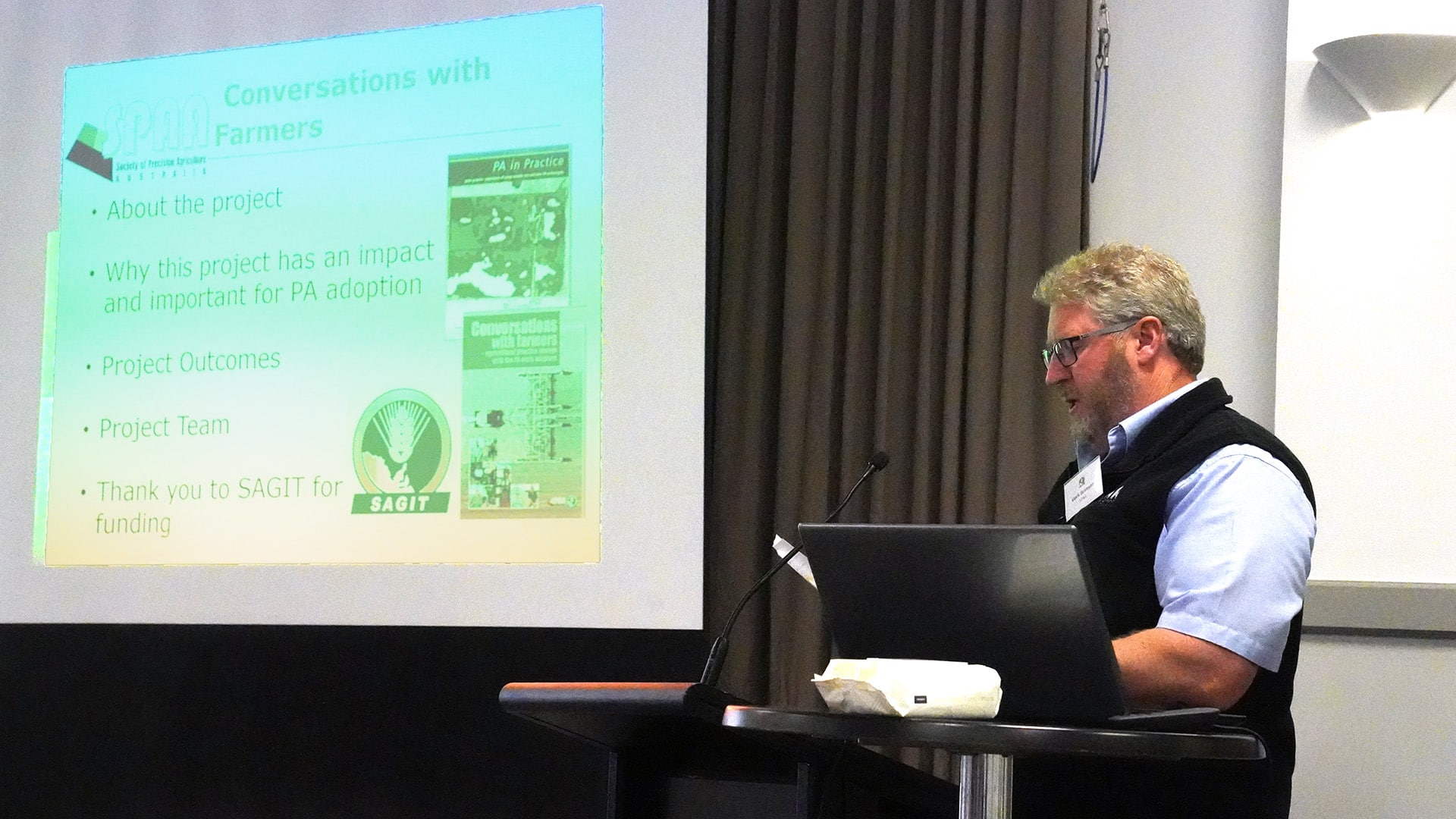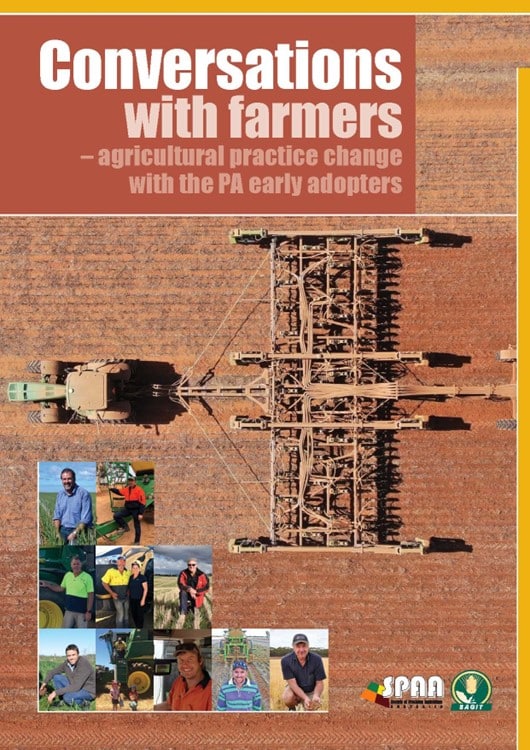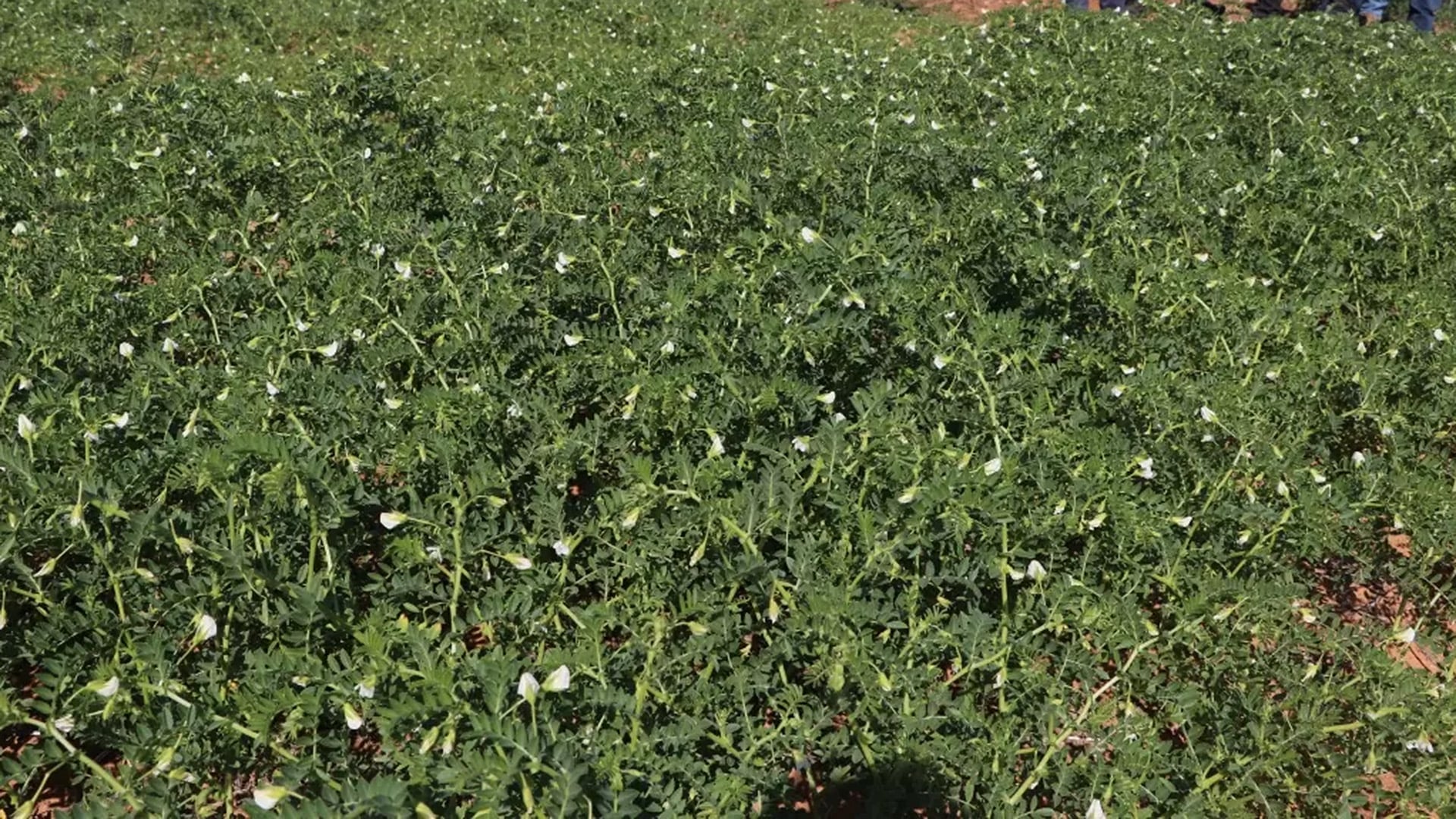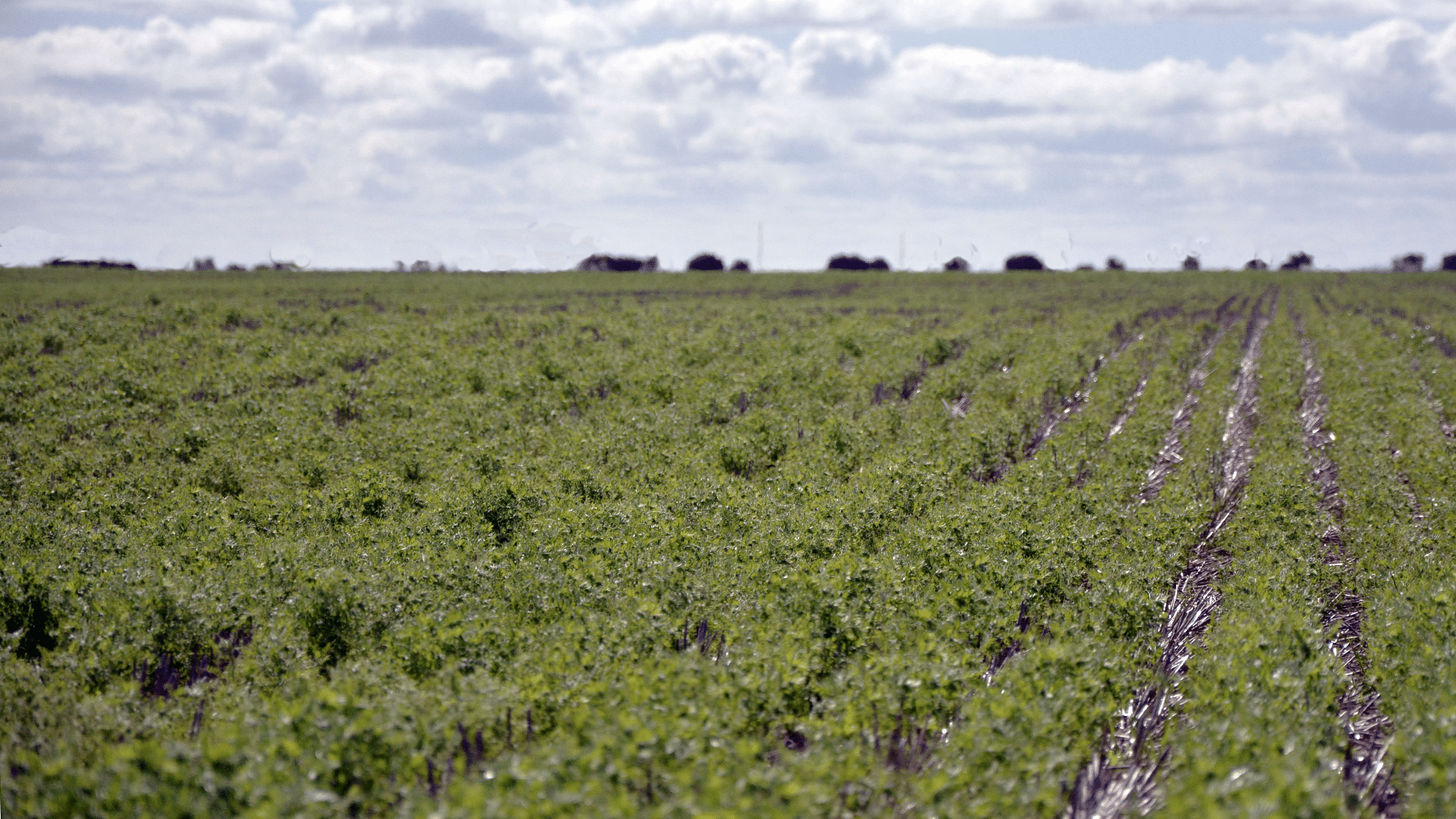START
FINISH
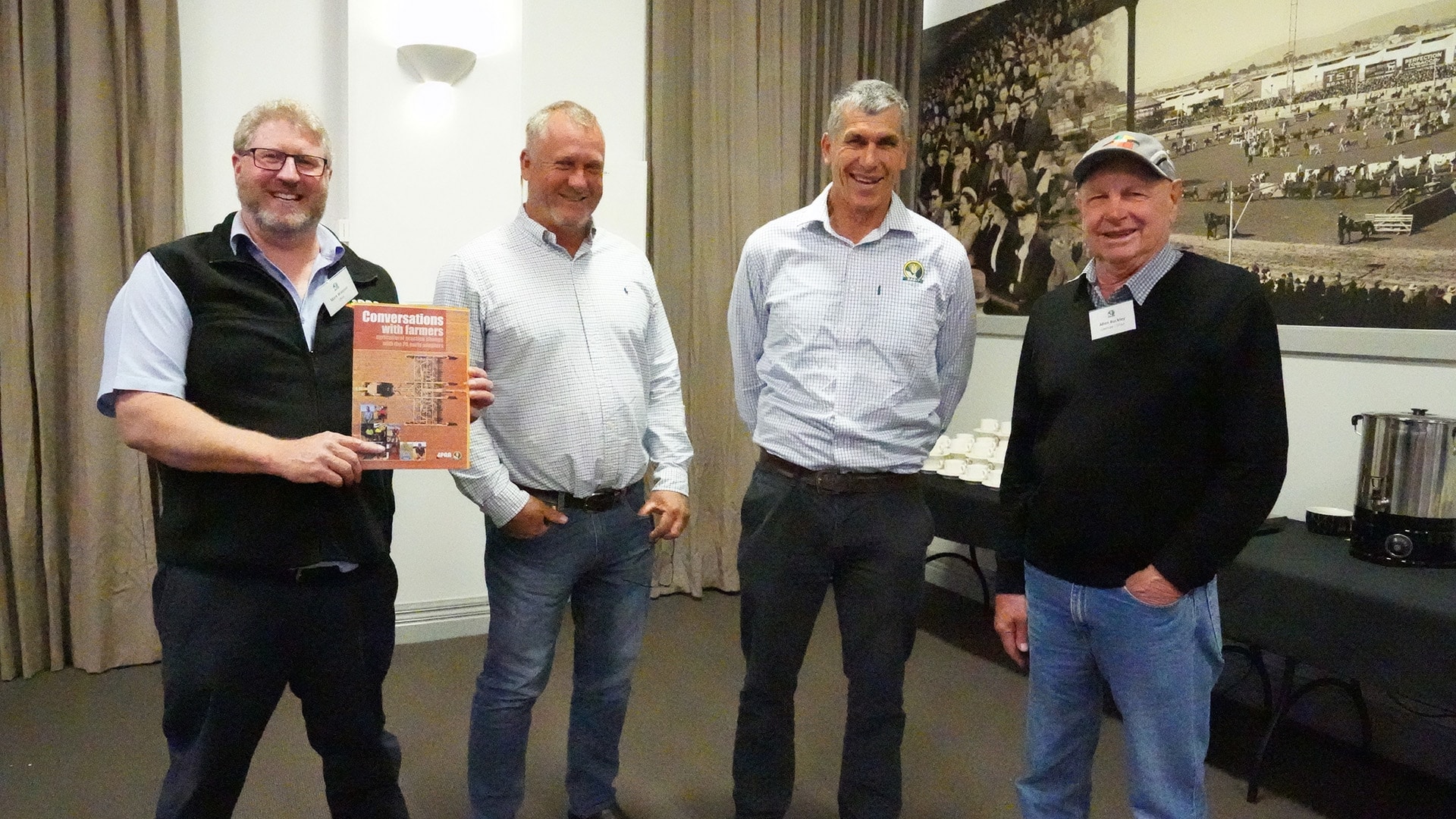
Summary
The Conversations with Farmers series was designed to deliver targeted and highly relevant information about precision agriculture (PA) tools, technologies, and techniques across South Australia (and nationally) through shared experiences.
The use of farmer case studies was beneficial in communicating the benefits of PA tools and helped readers to understand how these tools work as components of a larger farming system. This also assisted in providing the networks, knowledge and confidence to move to the next stage in their own PA journey.
Background
The original PA in Practice publication, produced in 2008 by SPAA, highlighted case studies of growers who were among the early adopters of PA technology. The original case studies demonstrated how these growers had used PA on-farm over the previous 10 years as well as the economics of implementation.
This project sought to revisit the original early adopters and demonstrate whether they had chosen to continue on the PA pathway, and how they were using the tools today.
A case study format was chosen as it has been demonstrated that growers learn through shared experiences. It also provides an opportunity to build a network for farmers and the private sector to work together and share knowledge around these tools and their implementation.
Research Aims
The core objectives of the project were to develop case studies with early adopters that:
- Explained why these farmers adopted various PA tools.
- Provided insight into which technology, tools, or components they found to be the most beneficial and valuable (costs v benefits).
- Examined how management practices have changed as a result of adopting and using PA.
- Determined the current satisfaction with individual PA components.
- Determined if the early adopters planned to continue to adopt PA components into the future.
In The Field
SPAA initially made contact with the original PA in Practice publication early adoption growers to invite them to be involved in the publication update. Ten case study growers were identified. In two cases, the sons of the farmers involved in the original publication were profiled, due to an increased involved in the farming operation and their desire to continue applying PA technology on-farm.
SPAA developed a tender process to appoint scientific and agricultural communicators to develop the case studies and engaged AgCommunicators. SPAA and AgCommunicators then developed a questionnaire to use in the interviews.
The release of the case studies was staggered, with the first one launched at the PA Expo at Cummins on the Eyre Peninsula in March 2019. The tenth case study was released in September 2020. Release of case studies was delayed over the harvest period.
Results
The publication, Conversations with farmers – agricultural practice change with the PA early adopters was officially launched at the SAGIT Annual Update in September 2020 by SPAA committee member Mark Branson and two of the producers featured in the publication, Brendon Johns and Allen Buckley.
The case studies were shared across SPAA Facebook and Twitter accounts and were shared by various other organisations, further boosting their reach. A print run of the booklet was produced and distributed to SPAA members with the October 2020 issue of Precision Ag News. Copies were also distributed to SAGIT, Ag Excellence Alliance and farming systems groups for further extension. An online copy of the booklet and individual case studies is available on the SPAA website https://spaa.com.au/resources/.
A number of the case studies were also published elsewhere, including Australian Grain, Grain Central and the Australian Grain Annual Yearbook.
Project Participants
SPAA: Dr Nicole Dimos, editorial and communications committee
AgCommunicators: Haylee Clifford, Alistair Lawson, David Foxx, Bridget Penna
Case study growers: Peter Kuhlmann, Stephen Paddick, Brendon Johns, Mark Branson, Robin Schaefer, Kym I’Anson, Tristan Baldock, Andrew Sargent, Leigh Bryan, Allen Buckley
The Problem
SPAA revisited ten precision agriculture pioneers on how PA continues (or not) to play a role in their farming success.
The research
A booklet of ten case studies profiling the early adopters including tips and advice was produced.
More information
Rachel Melland, Executive Officer, SPAA
E: [email protected]
Value for Growers
Case studies are a useful medium for communicating the benefits of PA tools in practice and provide insight into how these tools work as components of a larger farming system, rather than in isolation. This provides growers with the confidence and knowledge to move to the next stage in their own PA journey, or the networks to seek out further information.
Adoption of PA remains varied. In some regions, where PA use is advanced and sophisticated, the PA case studies provide a conversation to build further value. In other areas, more basic information is required to boost PA adoption. In both situations, the case studies will provide increased knowledge and confidence for growers looking to implement and integrate PA tools.

